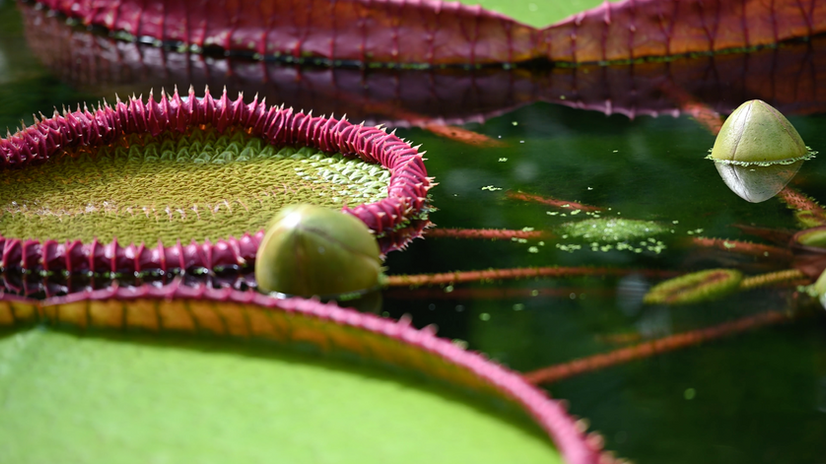
My recent research is centred on symbiosis, with a specific focus on mutualistic interactions between species. Mutualism, a subset of symbiotic relationships, occurs when both interacting organisms gain benefits from their association. This series of works highlights the significance of mutual interdependence, both within the same species and across different species, particularly in light of decreasing biodiversity and the destabilisation of ecosystems due to global heating.


My installation in the Contemporary Art Practice Degree Show at Royal College of Art examines the symbiotic relationship between termites and Termitomyces fungus. The termites feed the fungus with dead plant matter and cultivate the ideal temperature for its growth. In return the termites eat the fungus, essentially farming it inside of the mounds they build.
Installation view of Contemporary Art Practice Degree Show, Royal College of Art, London, 20th - 23rd June 2024
BY LEAVES WE LIVE

By Leaves We Live, made in collaboration with producer Reuben Charters-Bastide, is a audiovisual study into the importance of plants and how all life stems from these leafy species. The work features a quote by biologist Patrick Geddes and cover of Anohni’s song ‘4 Degrees’. The film aims to highlight why we must act now to avoid the projected 4 degree increase in the Earth’s temperature over the next century.
Installation view of By Leaves We Live (2024), CAP Cinema, Genesis Cinema, London, 28th March 2024

Bee House is designed to be a functional habitat for solitary bees. Unlike honeybees, solitary bee species choose to live individually rather than forming hive communities. They instead make their homes by nesting in objects containing small holes.
I have purposefully not yet drilled holes into Bee House, as I want to ensure the work finds its forever home, before being made a suitable place for solitary bees to nest. This is due to not wanting to disturb the bees once they’ve settled in to their new home.

BEE HOUSE
Installation view of Bee House (2024), Future Archaeologies, Camden Art Centre, London, on view until 30th June 2024
Beyond it’s practical intention, Bee House stands as a reminder of the essential role bees and other pollinator insects play in sustaining life on our planet. 80% of UK plant species, including many crops, rely on insects to transfer pollen between flowers to produce fruits and seeds. However, pollinator populations are declining due to habitat loss, insecticides and global heating. Providing and rewilding habitats for pollinators is a crucial part of safeguarding the delicate balance of our ecosystems, both for the present and future.

SEA LILY
Installation view of Sea Lily (2025), Strata, Toli, Xinjiang, 5 - 20 August 2025, curated by 149 Art. Sea Lily is installed alongisde Romane Courdacher's tile works.
Sea Lily is based upon the Red Sea Lily, a deep-sea crinoid found in oceans around the world. Despite its name and flower-like form, the sea lily is not a plant but a marine invertebrate. Fossils dating back 480 million years reveal the ancient lineage of this aquatic species.
The sculpture Sea Lily was shown in the exhibition Strata, in the Toli region of Xinjiang, where it was installed within a desert landscape that was once the floor of an ancient sea. The work is a speculative sculpture that imagines a history in which the Red Sea Lily’s ancestors might once have flourished across the Toli seabed.
Strata explores the entanglement of industrial remnants and natural regeneration. The exhibition re-situates these fractured terrains as a living archive, where extraction and reclaimation cohabit precariously.

SLOW TIME
Stills from Slow Time (2025), Strata, Toli, Xinjiang, 5 - 20 August 2025, curated by 149 Art. Sea Lily is installed alongisde Romane Courdacher's tile works.
Slow Time was commissioned by CW+ for West Middlesex University Hospital, in partnership with Royal College of Art. The film is displayed on screens in waiting rooms throughout the hospital to create a relaxing environment for patients and staff. The work was filmed in Kew Gardens and Syon Park, and focuses on the abundance and diversity of plant life. Its meditative pace reflects the slow temporality of plants - organisms often perceived as still, yet constantly moving just on a different timescale to our own. By bringing this slowness into the hospital environment, the work intends to offer moments of serenity in a setting where tensions can run high.
















